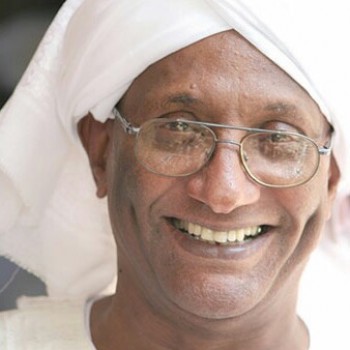What Happened to Our revolution .. Ask about the Class in its Leadership (1-2)

By: Abdullah Ali Ibrahim
(The title refers to the title of a play by the German writer Peter Weiss about the French Revolution, produced by the University Theater at the University of Khartoum in about 1968, and directed by Osman Jaafar Al-Nusairi. The original title of the play is “Jean-Paul Marat,” the radical French revolutionary. Al-Nusairi amended the title)
What happened to our Revolution until we became as what the Russian writer Maxim Gorky saw once when he returned to his homeland from exile? He said, “I found everyone so crushed and deprived of the Lord’s blessing.” He said, “The only solution is culture.”
I think we understood the December Revolution well in terms of the youth, the gender (Kandakat) in it, and even the ethnicity (the armed movements). What was not presented to us in understanding it is its class origin and its leadership in particular. The Marxist Communist Party, focused on class analysis which distinguished it from other parties by the the class of the opponent of the revolution, not the class of the revolution itself. Its opponents accused it of being “parasitic capitalism” so badly that the description almost became a joke.
It is clear that we are in a dilemma regarding the performance of the leadership in the revolution. No one is mistaken about this. Attempts at redress, including arrays, initiatives, and shouts of “Oh Hamdouk, oh Hamdouk,” did not suffice. The best solution for the time being is to demand the removal of one person from the leadership with another in order to improve the situation in a wish to reform. Then there was a frequent withdrawal of one group or another in what resembled a “market abandoner”, claiming that it was the surviving group.
I did not stop calling the revolution and its leaders a revolution of the educated, urban petty bourgeoisie, aiming to “create history, new values and paths” against the traditional conservative forces. These are the forces that white men, the cursed one, called the “Nobelism” class of “notables.” I spoke closely about the attribution of the revolutions of this class to the “formation of the coming life” from the time of the White Banner Revolution, to the Graduates Congress, to the October 1964 Revolution, to the April 1985 Revolution, to the revolution of today. This group continued to market itself among the people under different names, such as “the educated class,” “graduates,” “intellectuals,” “the elite.”
The description of the petty bourgeoisie came to them from the literature of the Communist Party. When this party directed its political flame at the working class as an urban group, it found that it had to introduce the other classes that shared with the workers in the project of social and political change that it called the National Democratic Society. The party found that the petty bourgeoisie faction is the surest ally that it must be careful not only to form, but also to guard against its influence. It is the most numerous in the party and society and from it, so that it does not prevail in the party and distort not only the independence of the workers with their project, but also the leadership of that project. Whoever reads “Correcting Errors in Action Among the Masses,” . One of the works of the session of the Central Committee of the Communist Party in 1963, was the party’s plan to curb this class within it (I showed it months ago on my Facebook page and this newspaper, and you can find it on YouTube).
I present here our experience in the Communist Party with the petty bourgeoisie. It is an experience that we have concluded with a common phrase among us, which is that it is a “fluctuating” class that quickly collapses under the burden of its own revolution. In other words: it does not improve its revolution. Our most complete views on this matter came in “Marxism and the Issues of the Sudanese Revolution,” the report of the Fourth Congress of the Communist Party, 1967. The party attributed the leadership of the October Revolution to the petty bourgeoisie, contrary to the prevailing belief that the party is its leadership, whether true, delusion, or theft. The report presented objective factors that will not concern us here, which prevented the party from preparing to lead the revolution at the head of the working class. The leadership vacuum was filled by the petty-bourgeois elite. He then said:
“The forces of petty-bourgeois intellectuals organized in the state apparatus were more capable of direct movement…so they formed the Bodies Front. It is true that the party played a prominent role among the striking forces (in the general political strike that brought down the regime of General Ibrahim Abboud). Its members made great sacrifices of martyrdom and perseverance.” But the emergence of the organizations Front at its core expressed the aspiration of the sections that led the strike (the petty-bourgeois intellectuals) to find a leadership that would express their aspirations. It expressed the fact that these sections did not see in the working class organizations an objective expression of their aspirations” (128-129 ).
We will continue to see how the intellectuals of the petty bourgeoisie relapsed in the revolution.
January 26, 2022



